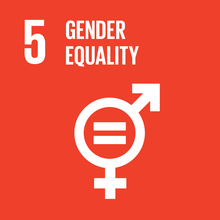Although the UNECE region is characterized by a high level of de jure equality between women and men, the persistence of discriminatory social norms and practices lead to de facto gender inequalities. Critical issues such as violence against women, which exists in all countries in the region, inequalities in the division of unpaid care work, women’s limited access to assets, violations of women’s and girls’ sexual and reproductive health and rights, and their unequal participation in private and public decision-making, remain unaddressed. Tackling these issues and furthering the progress of the 2030 Agenda requires identifying and acting on the root causes of gender inequalities.
Where do we stand on women’s economic empowerment?
Gender equality is not only a human rights issue but also has strong and positive effects on the economy. Across the UNECE region, significant gender gaps in the area of women’s economic empowerment remain, representing a tremendous economic loss for society.
What does UNECE do on gender?
UNECE makes significant contributions to the achievement of gender equality and women’s economic empowerment in the UNECE region, and within the organization. UNECE advocates for gender equality in its work within the UN system, as well as with its member States and partners at national, regional and international levels.
 As UNECE aligns its work with the 2030 Agenda for Sustainable Development, we contribute to the achievement of SDG 5 on gender equality by mainstreaming gender equality in all our activities. Read our 2022 UN-SWAP 2.0 report.
As UNECE aligns its work with the 2030 Agenda for Sustainable Development, we contribute to the achievement of SDG 5 on gender equality by mainstreaming gender equality in all our activities. Read our 2022 UN-SWAP 2.0 report.
 Guided by the UNECE Policy on Gender Equality and the Empowerment of Women, we mainstream gender in the work of our substantive divisions, as well as in our organizational culture. We developed a Gender Parity Strategy in 2017 to achieve equal representation of women and men in UNECE.
Guided by the UNECE Policy on Gender Equality and the Empowerment of Women, we mainstream gender in the work of our substantive divisions, as well as in our organizational culture. We developed a Gender Parity Strategy in 2017 to achieve equal representation of women and men in UNECE.
 UNECE works to improve awareness of the situation of women and men in the economies in our region, through research, policy dialogue and data collection.
UNECE works to improve awareness of the situation of women and men in the economies in our region, through research, policy dialogue and data collection.
 UNECE promotes women's economic empowerment through building capacity on closing the gender entrepreneurship gap, by providing training programmes and policy seminars.
UNECE promotes women's economic empowerment through building capacity on closing the gender entrepreneurship gap, by providing training programmes and policy seminars.
 UNECE encourages gender-responsive economic policy making, through the exchange of good practice, research, and policy recommendations.
UNECE encourages gender-responsive economic policy making, through the exchange of good practice, research, and policy recommendations.
 UNECE assists member States in monitoring progress towards international commitments on gender equality, notably through periodic reviews on progress in the implementation of the Beijing Declaration and Platform for Action at the regional level, and other commitments.
UNECE assists member States in monitoring progress towards international commitments on gender equality, notably through periodic reviews on progress in the implementation of the Beijing Declaration and Platform for Action at the regional level, and other commitments.
 UNECE engages in partnerships to collectively work towards gender equality in the region.
UNECE engages in partnerships to collectively work towards gender equality in the region.